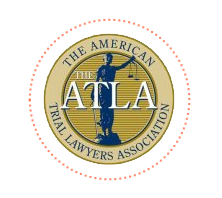Do All Witnesses Have To Testify?
Witnesses to crimes are often nervous about being called to testify because they possess important information that may be sensitive or just simply the uncomfortable feeling of being in a witness position. Criminal defendants have the right to confront their accusers, and if they feel the witness has viable information they can call them to court to be cross-examined. Sometimes the witness doesn’t have to be present, but instead are asked to give a court deposition under oath that will be presented in court.
These are the situations in which a witness can testify, or not.
Investigator Calls
It is typical for the case detective or an attorney to contact witnesses in hopes of finding valuable information. These professionals know how to squeeze information out of anyone and may make the witness feel forced or obligated to comply. As a witness, you can choose to provide what information you have, but you are not legally obligated to talk or meet with them. If you choose to give information, you should consider hiring a lawyer to support you and make sure you are safe from prosecution.
Subpoenas
If you are subpoenaed, it means that you are required to provide testimony as a witness in court under oath.Witnesses must answer questions in trial and may be held in contempt of court if they fail to cooperate. You may refuse only if you plead the fifth. Sometimes the circumstances make it difficult for a witness to give testimony, but there are ways of getting a statement regardless of the situation if the testimony is absolutely necessary. You may send a deposition if you live too far away such as in another state or country, are hospitalized or dying, or if you are already in prison or jail. If you feel you are unfairly being forced to testify, contact an attorney to defend your right to stay off the stand.
No Legal Duty
Witnesses to a crime may choose to alert authorities by calling 911 and choose not to speak to the police. The law does not require any witnesses to discuss with a responding officer about what they have seen or any details. If you prefer to remain anonymous, there is no legal duty to identify who you are unless an officer asks and requests that you do so for his or her safety and the surrounding public. You can choose the amount of information you give, but if you say something, remember that it will be recorded and you will be questioned based on your previous statements at the scene of the crime.
Being a witness to a crime is a very unfortunate thing that may cause trouble in your otherwise routine of life. If you want to speak with the authorities about a crime you witnessed, contact Colley & Colley law firm in Tyler, Texas for a free consultation. We believe you should be prepared for the types of questions you will be asked and understand what it means to share what you witnessed under oath.















